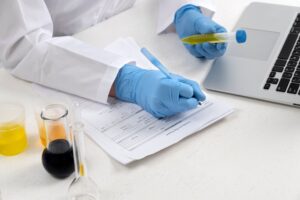Sexually transmitted infections (STIs) represent a significant public health issue, affecting millions of individuals globally. With many STIs often remaining asymptomatic, early testing and diagnosis are crucial for effective treatment and prevention of further transmission. This article discusses the importance of STI testing, the methods used for diagnosis, and the available treatment options.

Understanding STIs
STIs are infections that are primarily transmitted through sexual contact. They can be caused by bacteria, viruses, or parasites, leading to various health complications if left untreated. Common STIs include chlamydia, gonorrhea, syphilis, herpes, and human immunodeficiency virus (HIV).
Importance of STI Testing
Regular STI testing is essential for sexually active individuals, especially those with multiple partners or those who engage in unprotected sex. Early detection allows for timely treatment, which can prevent serious health complications such as infertility, chronic pain, and increased susceptibility to HIV.
Methods of STI Testing
STI testing can involve several methods depending on the suspected infection:
- Blood Tests: These are used to diagnose infections like syphilis and HIV. A healthcare provider will draw blood from a vein to analyze for specific antibodies or antigens.
- Urine Tests: Commonly used for diagnosing chlamydia and gonorrhea. Patients provide a sterile urine sample that is analyzed in a laboratory.
- Swab Tests: Involves taking a sample from the site of infection (e.g., vagina, cervix, penis) using a swab. This method is effective for diagnosing HPV, herpes, chlamydia, and gonorrhea.
- At-Home Tests: Home testing kits are available for some STIs, allowing individuals to collect samples privately and send them to a lab for analysis.
- Physical Examination: A healthcare provider may conduct a physical exam to look for visible signs of infection such as rashes or sores.
Diagnosis of STIs
Diagnosis typically begins with a thorough review of the patient’s sexual history and symptoms. If an STI is suspected based on this information and any physical examination findings, appropriate tests will be ordered. It is essential to answer all questions honestly to ensure accurate diagnosis and treatment.
Treatment Options for STIs
Treatment varies depending on the type of STI:
- Bacterial STIs: Infections like chlamydia and gonorrhea are usually treated with antibiotics. It is crucial to complete the entire course of medication even if symptoms resolve quickly.
- Viral STIs: Conditions such as herpes and HIV cannot be cured but can be managed with antiviral medications that help control symptoms and reduce viral load.
- Follow-Up Care: Patients diagnosed with certain STIs may require follow-up testing to ensure the infection has been cleared and to prevent reinfection.
Preventive Measures
Preventing STIs involves several strategies:
- Regular Testing: Routine STI screenings can help identify infections before they cause serious health issues.
- Safe Sex Practices: Using condoms consistently and correctly reduces the risk of transmission.
- Vaccinations: Vaccines are available for certain STIs like HPV and hepatitis B.
- Open Communication: Discussing sexual health with partners can promote mutual understanding and encourage testing.
FAQs
1. What are common symptoms of STIs that should prompt testing?
Symptoms may include unusual discharge, burning during urination, sores or warts on genitals, itching, or abdominal pain.
2. How often should I get tested for STIs?
It is recommended that sexually active individuals get tested at least once a year or more frequently if they have multiple partners or engage in unprotected sex.
3. What happens during an STI test?
An STI test may involve providing a urine sample, blood draw, or swab from the genital area; it is generally quick and minimally invasive.
4. Are there at-home STI tests available?
Yes, several at-home test kits are available for common STIs; however, it’s important to follow up with a healthcare provider regarding results.
5.Can STIs be cured?
Many bacterial STIs can be cured with antibiotics; however, viral infections like HIV and herpes can be managed but not cured.
Conclusion
Welcome! Our clinic is here to empower you with the knowledge and resources for your sexual health, offering easy access to STI testing, diagnosis, and effective treatment. Visit us at https://tscmlk.com/ or call us at (469) 981-0529 to schedule your appointment today!
